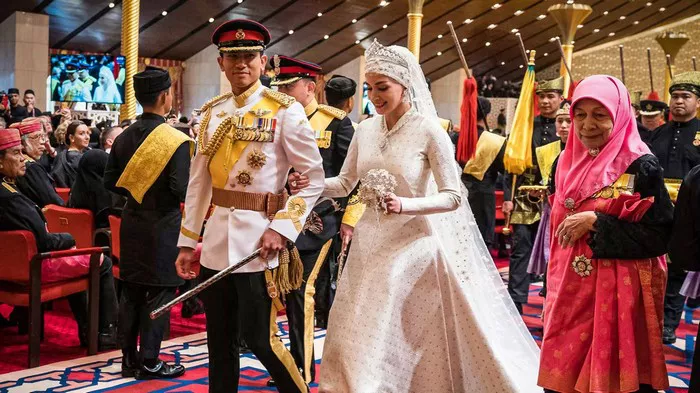As the world becomes more interconnected, an increasing number of couples are blending cultural traditions in their weddings, creating beautiful, multicultural celebrations that honor both partners’ heritages. These fusion weddings are a testament to love’s ability to transcend borders and bring families together.
One of the most striking aspects of fusion weddings is the merging of ceremonial rituals. A couple might incorporate a Hindu “Baraat” (groom’s procession) followed by a Christian vow exchange, or a Chinese tea ceremony alongside a Jewish “Hora” dance. These combinations not only reflect the couple’s backgrounds but also educate guests on diverse customs, fostering a deeper appreciation for different cultures.
Attire often plays a central role in fusion weddings. Brides may wear a white gown for the ceremony and switch to a traditional lehenga or qipao for the reception. Grooms might pair a Scottish kilt with a Japanese “hakama” or don a tailored suit with cultural embroidery. Accessories like henna, tribal jewelry, or symbolic colors further personalize the look.
Food is another area where fusion shines. Couples are curating menus that blend flavors from both cultures, offering guests a culinary journey. A reception might feature sushi alongside Italian pasta, or a dessert table with baklava and tres leches cake. Some opt for interactive food stations where guests can customize dishes inspired by both traditions.
Music and dance performances often highlight cultural fusion. A live band might play a mix of salsa and Bollywood hits, or a DJ could seamlessly transition from Afrobeat to country swing. Dance floors become a melting pot of movement, with guests learning steps from different cultures as they celebrate.
Language also plays a meaningful role. Bilingual ceremonies, where vows are spoken in both partners’ native tongues, add a deeply personal touch. Programs and signage may include translations, ensuring all guests feel included.
Ultimately, fusion weddings are about more than just combining traditions—they’re a celebration of unity in diversity. By honoring their roots while embracing each other’s cultures, couples create a wedding that is as unique as their love story.

